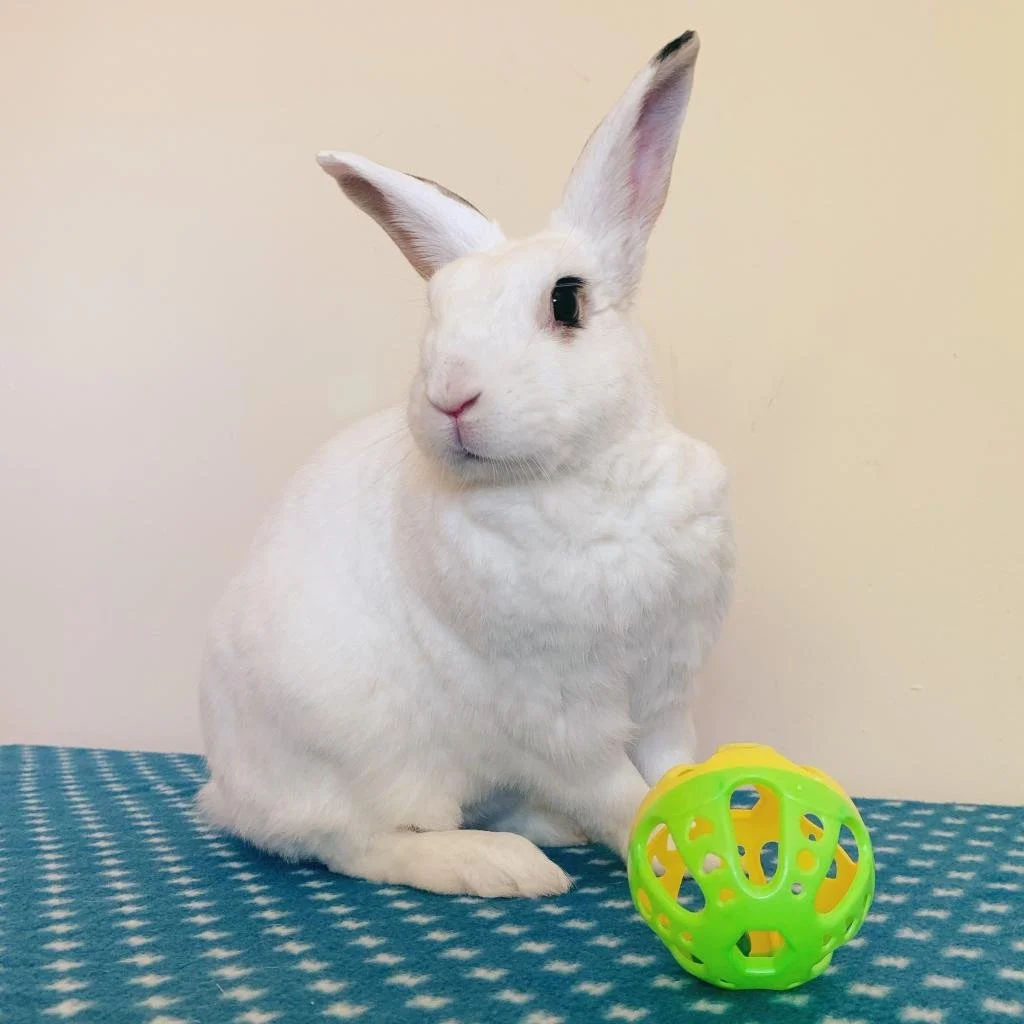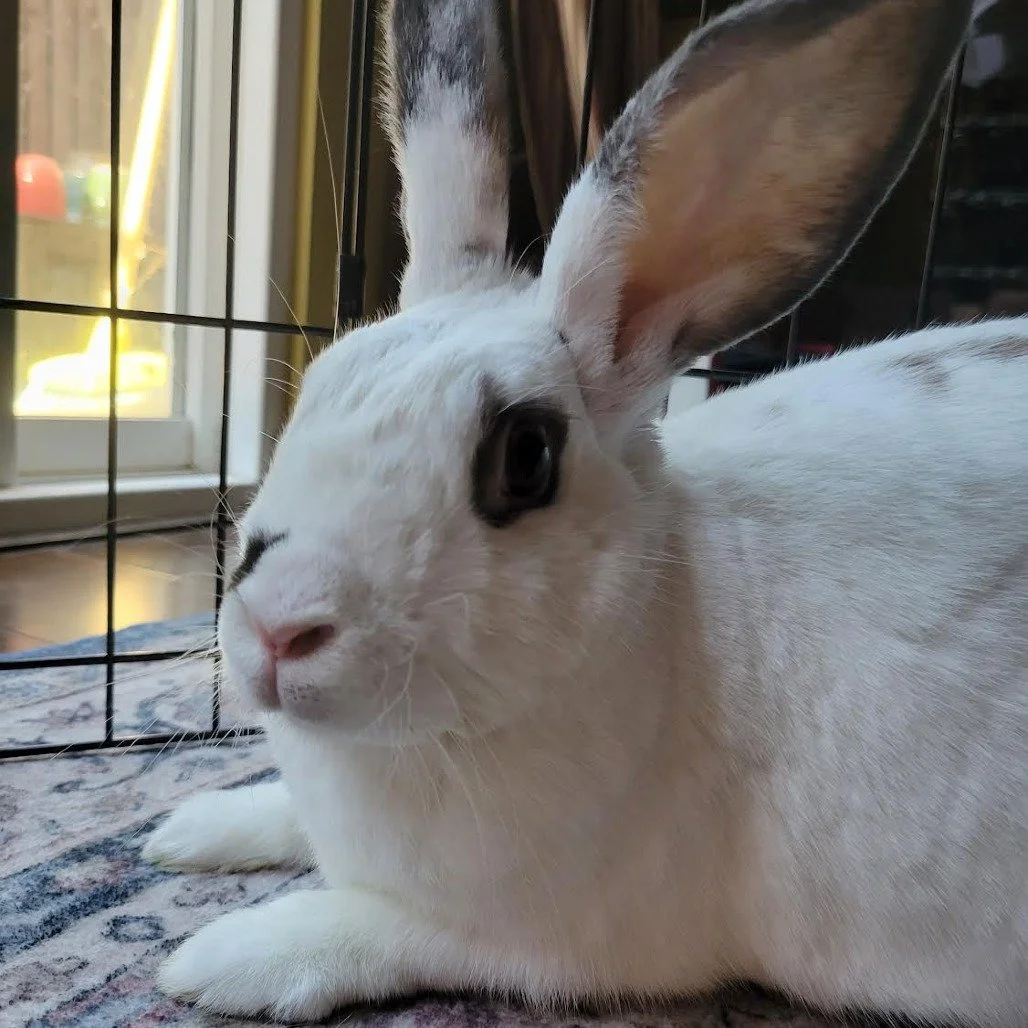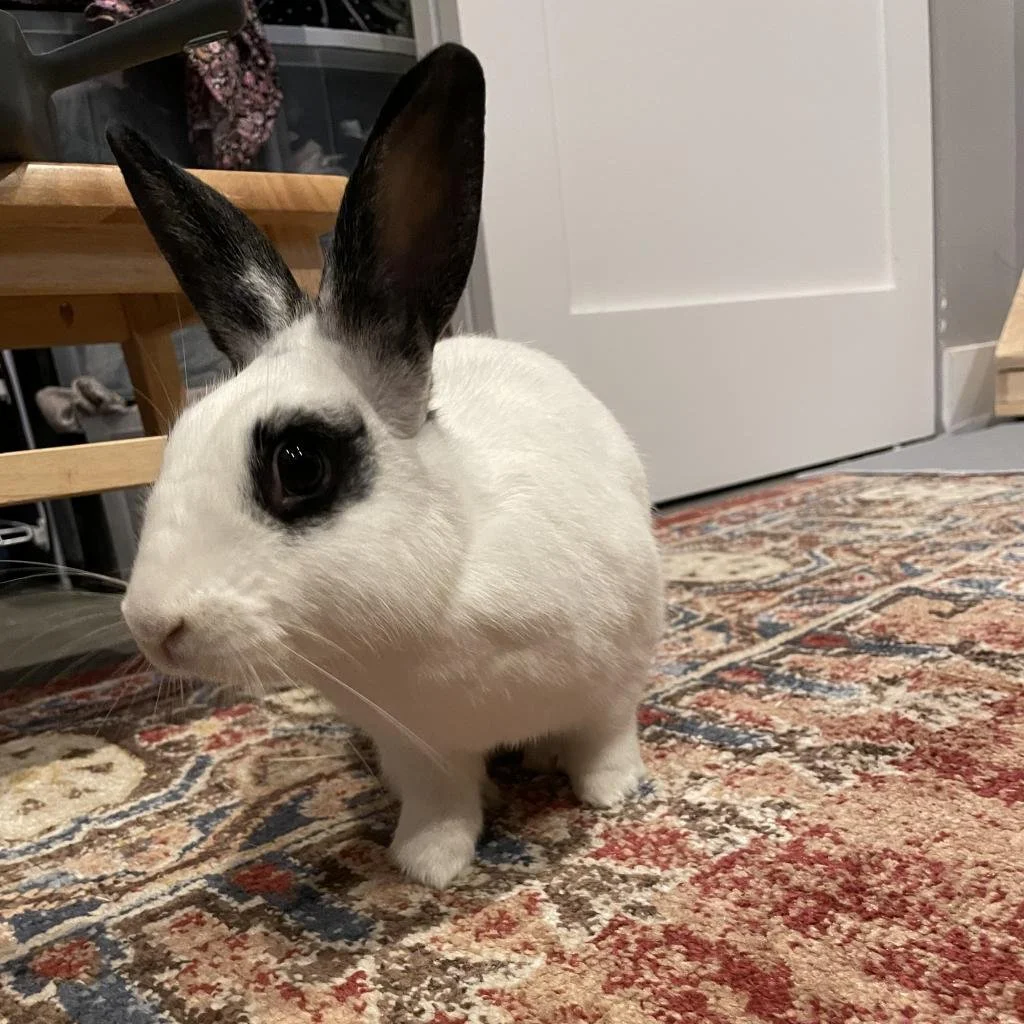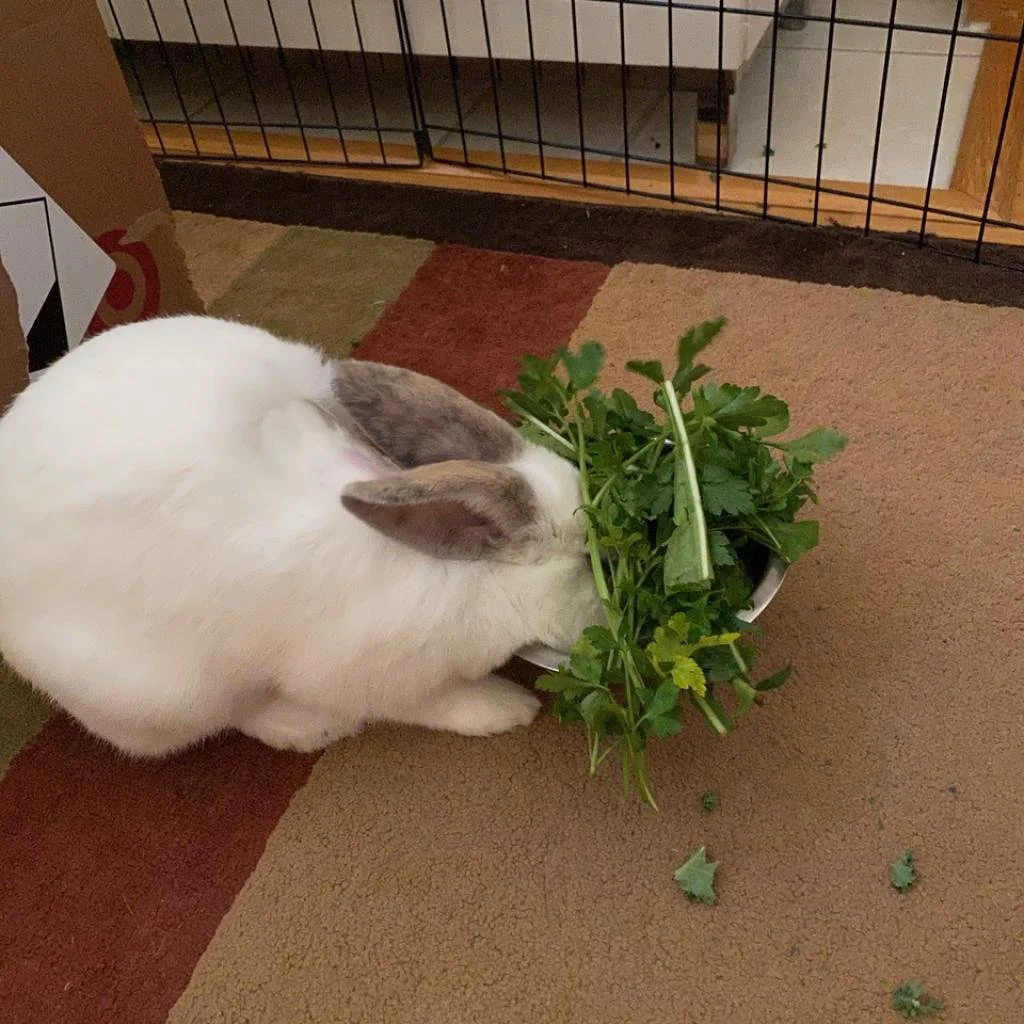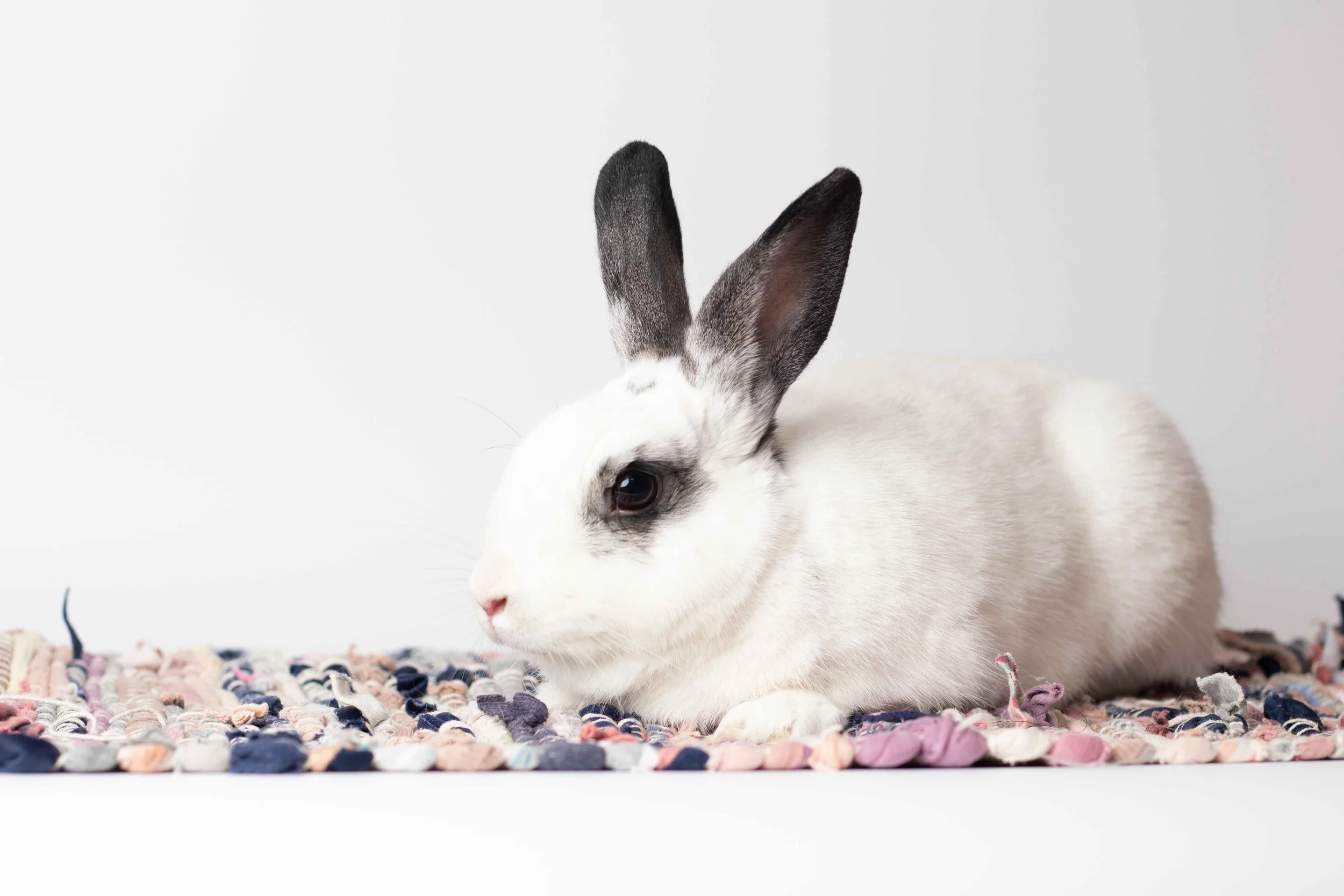
Megacolon Syndrome
Megacolon Syndrome is a lesser discussed condition that effects rabbits of the English Spot breed. Rabbits with this condition can live fully, healthy lives with a balance of proper housing, diet, exercise and routine veterinary care.
What is Megacolon Syndrome?
Megacolon is an inherited genetic condition that is believed to affect the nerves in a rabbit’s intestinal tract and causes dysfunction, leading to unresponsive and intermittent diarrhea and weight loss. It often gets progressively worse as the rabbit ages. The condition can lead to a slowing of food through the digestive system and may need to be regulated with motility medication(s) and diet manipulation. Rabbits with megacolon typically have droppings that are irregular shapes and sizes, regardless of their diet, and sometimes can be very wet or have mucus present.
Which Rabbits Typically Have Megacolon?
Spotted rabbits who are mostly white but have fewer spots, rabbits who have only color around their eyes, and rabbits with irregular markings on their nose/ears have more of a predisposition to megacolon. Rarely, a white bunny with pink eyes can be affected. If a bunny has this coat pattern and irregular size/shape droppings, visit a rabbit-savvy veterinarian to get a fecal test to rule out coccidia. You should also inquire about the possibility of megacolon and what treatment they may recommend, such as motility medications. There is no definitive test for the syndrome.
How is Megacolon Treated?
For rabbits with megacolon, it’s critical to notice any signs of discomfort, lack of appetite, and a decrease or change in droppings, as these are indications the condition could be worsening, and veterinary help should be sought immediately. Rabbits with megacolon require more regular preventive vet visits than other rabbits as their condition should be checked by a veterinarian to see if any medications need to be added, changed, or adjusted, or dietary changes are needed. HRS recommends a rabbit see a rabbit-savvy veterinarian once a year, and twice a year or more for senior rabbits (6 years+). Rabbits with megacolon may also require vet visits twice a year or more.
At HRS Headquarters, regular veterinary care and medications have helped lengthen the lives of many rabbits with megacolon and they can help prevent hypomotility syndrome. A GI crisis for a rabbit with megacolon can further damage their intestinal function, so prevention is key. Most medications can be flavored with palatable tastes like banana, which means most rabbits love taking them! People who have adopted and fostered rabbits with megacolon have told us that these are some of the sweetest, most loving rabbits they have known. Giving their bunny a daily medicine that they often think is a special treat helps to create a special, close-knit bond.
Dietary Considerations for Megacolon Rabbits
For rRabbits with megacolon may not absorb the nutrients from their food well. Without treatment, rabbits can lose weight and muscle, especially along their back. Rabbits with megacolon need pellets in their diet for the extra nutrition and calories, and they may need larger servings than other rabbits. Extruded, alfalfa-based pellets may be easier for them to digest. Young rabbit pellets may also be needed.
Rabbits with megacolon may do well with most greens, to help give them extra moisture and fiber. Some rabbits are more sensitive to certain vegetables, so it’s important to observe your rabbit when you introduce new greens. Herbs such as peppermint and cilantro, both of which can help with digestion, may help rabbits with megacolon as well.
HRS recommends not feeding fruit to rabbits with megacolon—in general, fruit should be rarely fed to rabbits due to its high sugar content. Treats should only be fed in limited quantities as well, and hay-based treats are best.
Like with any rabbit, rabbits with megacolon need to get plenty of exercise time outside of their enclosure, to keep them happy and healthy. Encouraging hay eating is also very important, as is offering a variety of types of hay.
Living with a Megacolon Rabbit
With more regular preventive veterinary care and potential regular medications, megacolon can be medically managed. It’s important to work closely with a rabbit-savvy veterinarian who understands megacolon and can make medication recommendations and adjustments as needed should the condition progress. It’s also critical for rabbit guardians to recognize the signs of a GI tract slowdown and have a plan in place when an emergency arises.
While rabbits with megacolon require a bit more extra care, they can be just as sweet and fun to care for as any other rabbit. Don’t let the fear of their condition stop you from falling in love with one!
Quotes From Megacolon Rabbit Households
“Words cannot describe the pure joy that Honeydew brings into our lives. She is sweet, sassy, and hilarious. She has megacolon but that doesn’t define her. We have a set schedule with her medications and have to monitor her eating and litter box habits, which is the norm for non-megacolon bunnies too. We were nervous in the beginning about adopting a megacolon bunny, but it was so worth it. Honeydew takes her meds like a champ. In fact, she even thinks they are treats! The support we have received from the HRS has been wonderful as well. Megacolon is manageable and we are so thankful that we decided to take on a megacolon bunny because we would have missed out on the amazingness that is Honeydew.”
– Ryan, who adopted Honeydew in 2021 from HRS HQ
“Tostada is a wonderful bunny. She is playful, gentle, and loving. Tostada loves to eat! She binkies for breakfast and dinner. Admittedly, I was a bit nervous about living with a megacolon bun. It felt intimidating. However, there has not been any difference living with her than my three other bunnies. We follow a schedule of feeding breakfast and dinner. Since that has always been our routine, giving the meds twice a day has not been a challenge. Tostada likes the taste of her medication and she licks it right up. I look forward to coming home and seeing her face. She greets me with binkies and zoomies, which just brighten my day!”
– Anna, who fosters Tostada from HRS HQ


